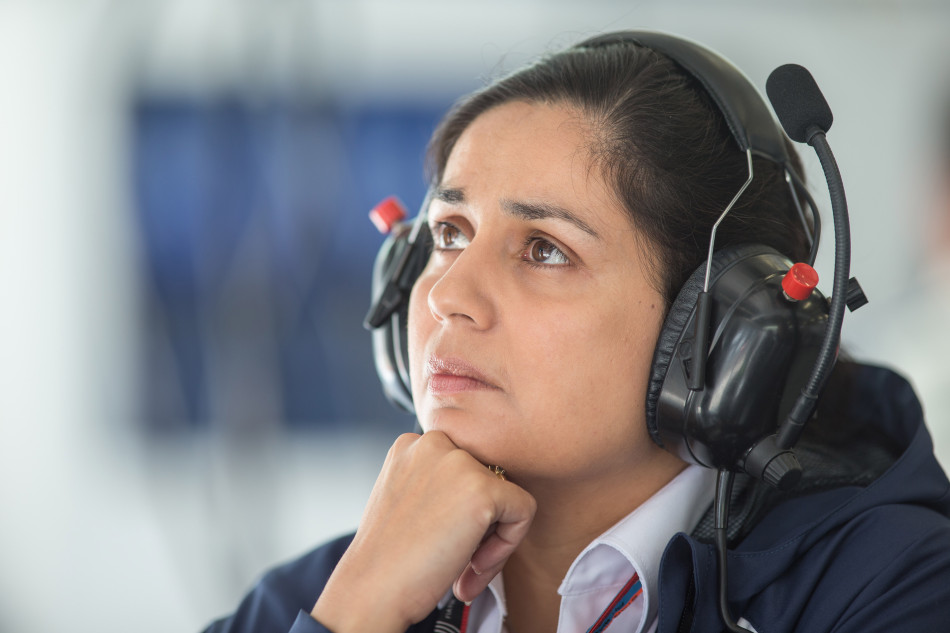Women in Motorsport and the new girls’ network
Ahead of this week’s Seminar, long-standing Ambassador to the FIA Women in Motorsport Commission Monisha Kaltenborn talks about the on-going progress being made.

In the run-up to the 2016 FIA Women in Motorsport Commission Seminar taking place this week in Lisbon, Sauber Team Principal and Commission Ambassador Monisha Kaltenborn talks about the advantages of networking, the abolition of guilt, and promoting the best woman for the job.
While men have long since benefitted from social networks and connections based on old school ties or family friends, women have historically been reticent when it comes to using their connections to explore professional opportunities, Kaltenborn acknowledges.
Men “have no guilty conscience but we do,” she says. “If we were to get together just with women, we’d think ‘what are they going to say?’. Why do we think like this? Why do we start questioning ourselves? We think we have to justify, but we should just do what it is. We should just think the same way.”
Networking is equally important for women, Kaltenborn says, and it is something that should be fully exploited by those hoping to break down new barriers. It is through the new girls’ network fomented by the Women in Motorsport Commission that some of the greatest progress is being made.
“We’ve seen ourselves how young girls have gone to their ASNs (National Sporting Authorities), and the ASNs are the most important factor - to me - in developing young girls for coming into motor sport. You can see this with the network we have created: [on behalf of interested young women] the ASN can contact somebody already established in motor sport, somebody from our network, from the Commission. You take out the time, you meet up with people, and this is where you actually start making use of that network.
“We’ve really grown so much [as a Commission], and the seminars are very helpful. You will see a lot of parents there, [such as] a Swiss family we met in 2012 and also others from all over the world. They knew of the Commission through their ASN and contacts, so these things are coming up.”
For Kaltenborn, the key to involving women in motor sport is about creating opportunities, much as the FIA is currently hoping to do with a European karting slalom.
“Why are they not having more girls coming up? Because the opportunities are not there. I think from that perspective I would put more emphasis on the opportunities side and say let’s take this [karting slalom] as creating the opportunities, to have enough girls come in and let’s see - if they can do this, then why can’t they go into a competition where there are boys? I think it’s a means to get closer to your target, and then we will see how it actually develops.”
Creating opportunities does not mean promoting undeserving talent. Instead, it means identifying those candidates with the skill to do the job - be it that of engineer, of race driver, or of team strategist - and ensuring that qualified candidates are not overlooked on account of their gender.
“We have to start being proud of our own networks in here, and not get a guilty feeling anywhere if we do something for a woman,” Kaltenborn says. “It’s almost equated that if we do something for a woman it’s because she’s a woman. That is true, but what is never said before is she has to keep working for it, but actually she is the right person for the job. And yes, she’s a woman. How nice. The part that she actually is the best candidate is usually not said. It’s reduced to ‘it’s a woman’.”
Sauber have recently acquired the services of former Ferrari and Haas strategist Ruth Buscombe, but despite Buscombe’s excellent reputation she was subject to high levels of assessment before being offered the role, Kaltenborn explains.
“I also hope that [Ruth] does see that because she is the best candidate for this position, it’s only an add-on here that she’s a woman, and that she never needs to worry about any kind of derogatory comments coming in here being gender-based, or blaming her for things because she’s ‘just’ a woman. Ruth has been chosen because she is, for us, the best candidate we have. The level that we set was very high, and she was the best candidate. The fact that she’s a woman is only a plus.”
Another key factor is the increasing number of female role models working within the sport, from Kaltenborn and fellow acting Team Principal Claire Williams, to race engineers like Leena and Teena Gade. Seeing women already in “impossible” roles is further motivation for young women interested in a career in motor sport yet facing opposition from friends and family.
“Very often, young girls get to hear at home or in their immediate surroundings, ‘why do you want to go and do this? There’s no other woman that does this.’ Maybe it’s out of [a sense of] protection that they don’t want them to follow such a rough path. If they can show up and say, ‘no, I can do this much better than you’, they’re more confident and hopefully their surroundings are more supportive as well,” Kaltenborn concludes.

 Facebook
Facebook Twitter
Twitter






